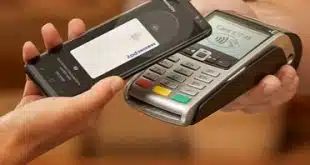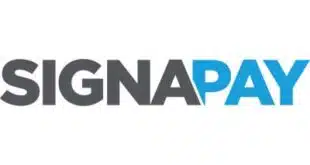Just as we were preparing to send this issue to press, news came about an interesting effort in Germany to steal a march on developing a checkout-free store. An outfit called VR Payment has created a service called payfree that uses radio-frequency identification technology to let stores scan tags on merchandise as customers traverse the open area toward the store’s exit. No checkouts, no checkout lines, no fuss, no muss.
Just one hitch. Or maybe several. First, there’s no word on when this system will actually be available commercially, let alone what it will cost. VR Payment, a payments unit of Volksbanken Raiffeisenbanken Cooperative Financial Network, was demonstrating payfree at EuroShop, a retail trade show in Dusseldorf, late last month.
Also, questions remain about how well it will work. The idea is to scan RFID tags on the merchandise in customers’ bags or baskets as they exit the store, then charge a payment card embedded in a payfree app set up by the customer. The system will also generate a receipt that can be sent to the app. But how accurate will this scanning be? In busy stores, you could have quite a few people exiting all at once with items buried deep inside those bags.
Working with a software partner, VR Payment says it has cracked that nut by widening the range, speed, and accuracy of RFID scanning, which was once limited to handheld devices checking individual items at close range. The proof will come, we suppose, as payfree reaches commercial applications.
The wider complication could be political. Efforts such as Amazon.com Inc.’s celebrated Amazon Go stores (“Checkout Re-Imagined,” April), which wipe out the familiar checkout by similarly tracking what customers put in their shopping baskets and then charging a card on file, have run into a rough time with legislators who fear the system discriminates against cash-using customers. Not always, but usually, these customers come from lower income brackets.
Another potential hurdle lies in one of the selling points for systems like payfree: store savings through eliminating checkout infrastructure and cashier jobs. That could rouse considerable labor opposition—and political trouble—in any number of countries.
Technology usually wins when confronted by political roadblocks like this. Consider how advanced telephone-system switching swept away many thousands of jobs for what we once called “telephone operators,” people—usually women—who manually connected callers to the parties they were calling. The genius of free markets is that they ultimately find solutions for dislocations like this—and ones that are better-paying, to boot.
Now technology like payfree will test that proposition again in an area of central importance to the digital-payments revolution.
—John Stewart, Editor, john@digitaltransactions.net




